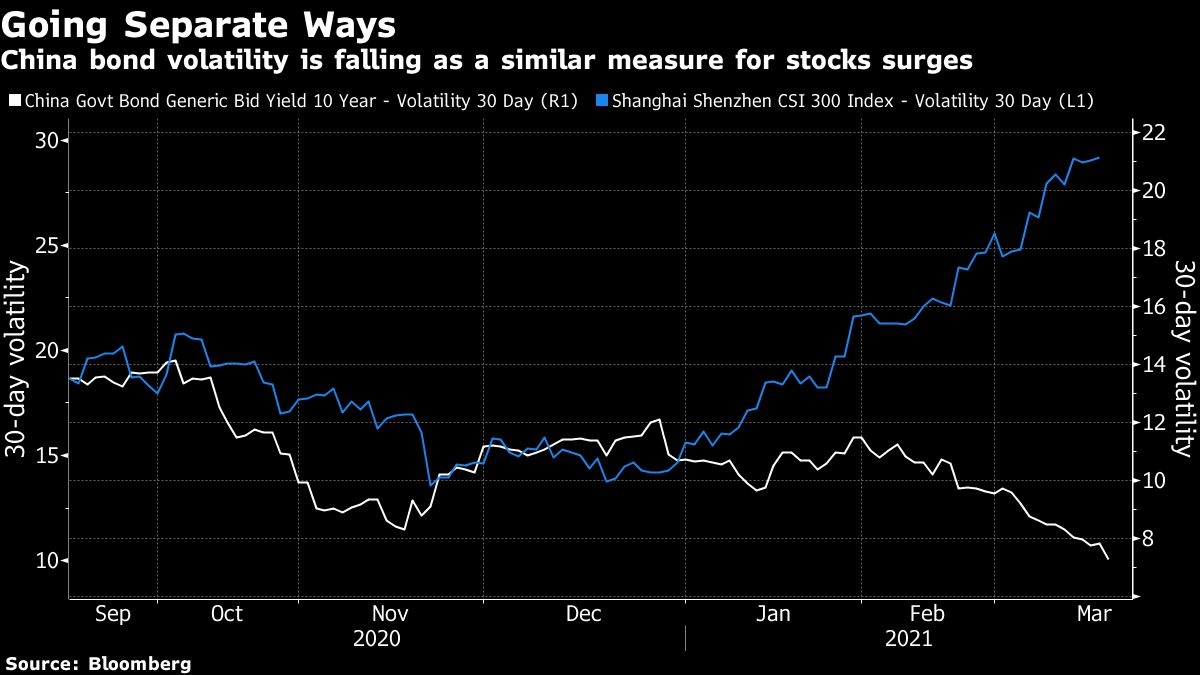Mar 16, 2021
China's stock volatility contrasts with calm in bond markets
, Bloomberg News
How High a Yield Is Too High for EM Assets?
As rising U.S. Treasury yields and potential credit tightening in China expose Chinese stock traders to wild market fluctuations, their bond peers are enjoying a period of relative calm.
A measure of 30-day volatility in Chinese shares has surged to its highest since August as the benchmark CSI 300 Index struggles to recover from a rout that’s seen it lose more than 13 per cent since closing at a 13-year high last month. Meanwhile, swings in China’s key 10-year sovereign bond yields have narrowed to the lowest since late 2018, according to data compiled by Bloomberg.

Not just relative to local stocks, Chinese bonds have proved resilient even when compared to peers in other markets, as the global reflation trade has triggered increased price swings from Australia to Europe. China’s 10-year yield has moved within a tight seven basis-point range over the past month.
“The expensive valuations of stocks has made traders extremely sensitive to bad news these days,” said Jackson Wong, Hong Kong-based asset management director at Amber Hill Capital Ltd. “Also, lots of recent government measures do not affect bond market that much, such as the clampdown on technology giants, but those hurt heavyweight stocks directly.”
Meanwhile, the ongoing corporate earnings season in China has also contributed to volatility in the stock market.








